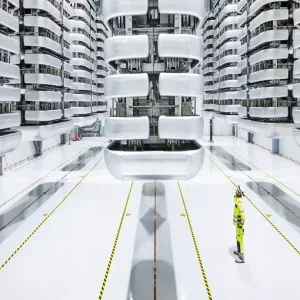National electricity access rates across the Nile Equatorial Lake region are low, ranging between 2 and 17 percent, and only 4 percent in DRC. The country’s North Kivu and South Kivu regions, areas in which the DRC component of the larger Nile Equatorial Lakes Subsidiary Action Program (NELSAP) is active, have a combined unmet electricity demand of 115 MW and experience rampant interruptions in supply. Diesel generators drive the majority of the country’s private power production.
The overall objective of the NELSAP is to improve access to electricity within the Nile Basin Initiative countries through increased cross-border power trade following the establishment of Uganda-Rwanda and Kenya-Uganda interconnections, in addition to an upgrade of the existing interconnections between Burundi, the DRC and Rwanda.
The implementation NELSAP’s DRC component will eventually bridge the energy gap in the provinces of North Kivu and South Kivu; promote energy trade between countries linked by the regional interconnected grid; and increase the electricity access rate in the project area from 4 to 7 percent. In addition, residents and economic operators in the project area will save on the cost of fuel used to power diesel generators for private power production.
AfDB Energy, Environment and Climate Change Department Director, Alex Rugamba, stated that, "In the DRC, this project will increase electricity supply, mainly from hydropower, at a much lower price than the cost of private power generation. It therefore supports AfDB’s mission of bringing sustainable access to electricity throughout the region."
The DRC project components include: construction of a 95-kilometer 220 kV Goma-Bukavu line and the Buhandahanda substation; construction of a 13-kilometer 220 kV Goma-Gisenyi line and the Goma substation; studies; project monitoring and supervision; and project administration and management.
The Bank is co-financing the DRC project component with The Netherlands, which is providing a € 6.5 million grant. Funds for the entire NELSAP project (covering DRC, Rwanda, Burundi, Kenya and Uganda) have been mobilized from the AfDB, European Union, Government of Germany and its development bank (KfW); Japanese International Cooperation Agency, Government of the Netherlands, and Swedish International Development Agency at a total cost of USD 223 million, including approximately USD 10 million in counter-funding from the beneficiary countries.






